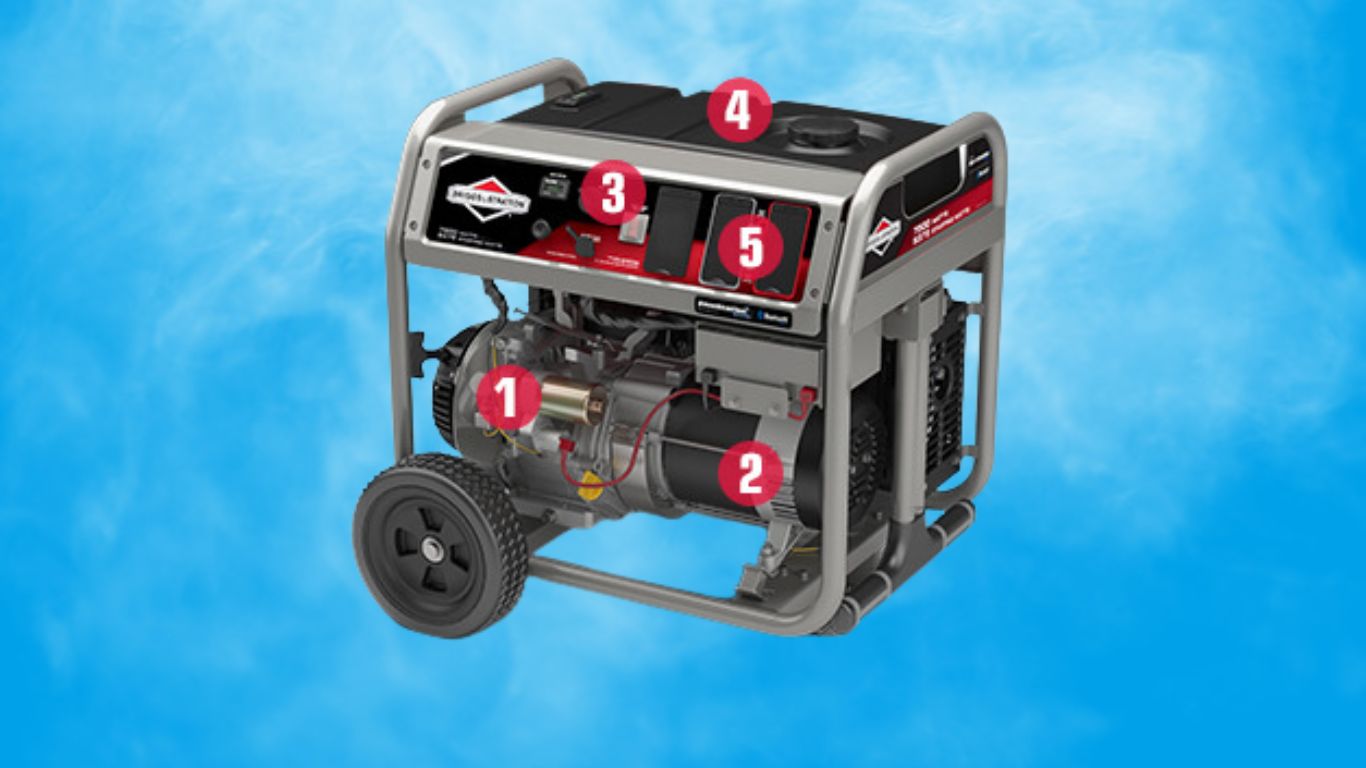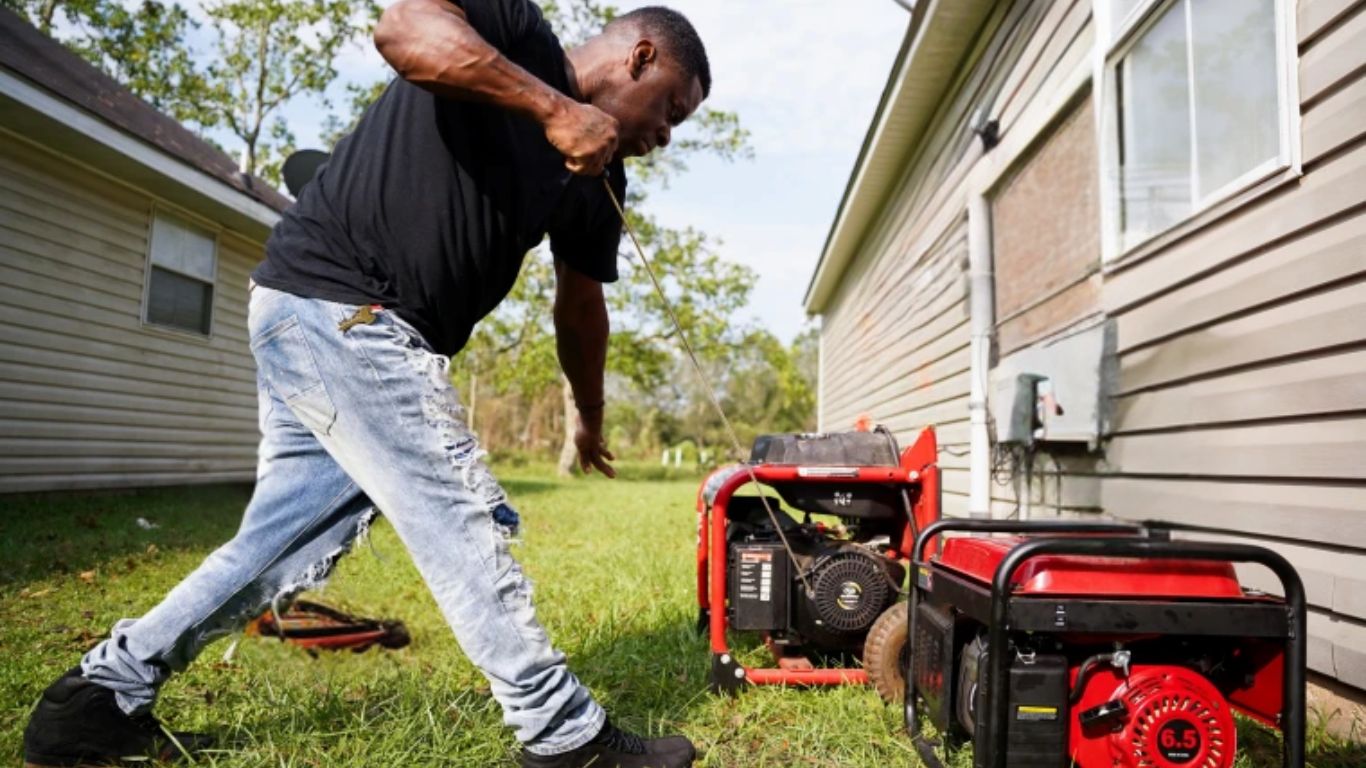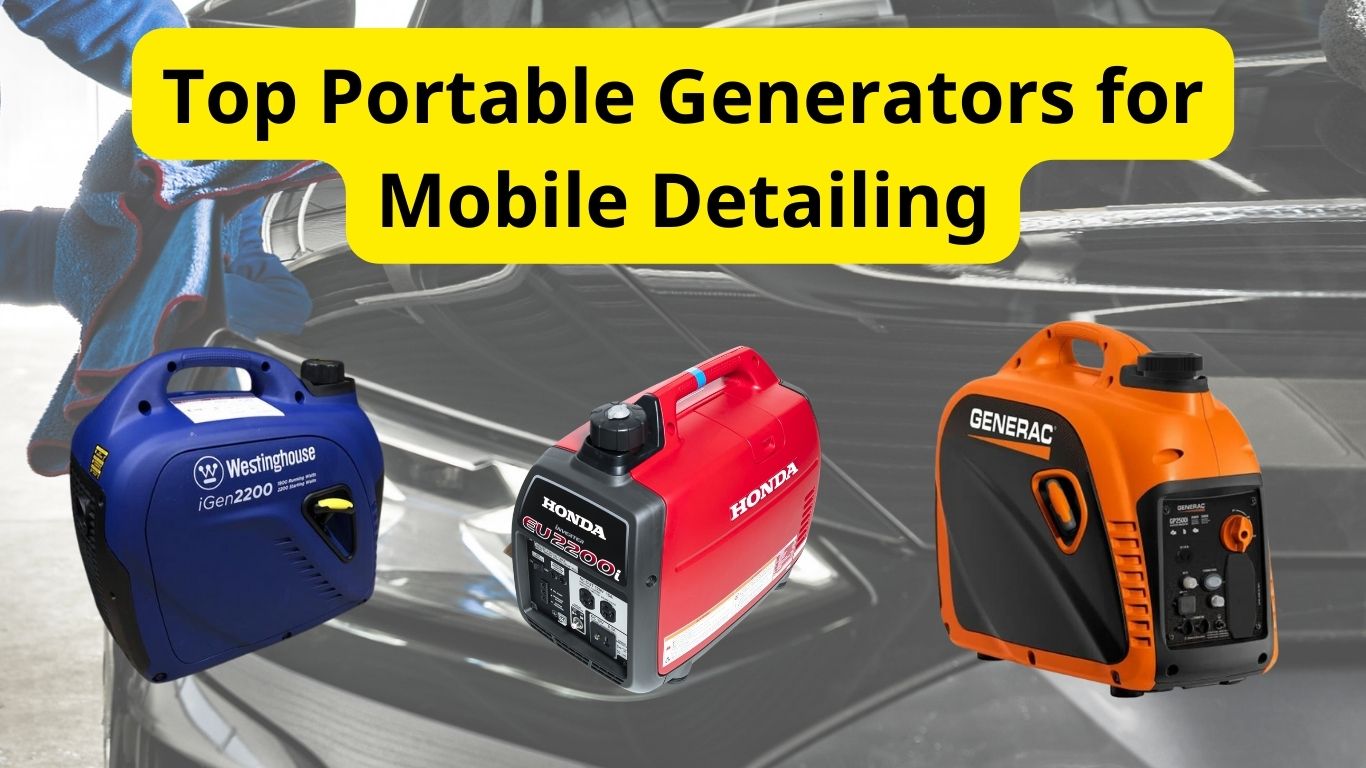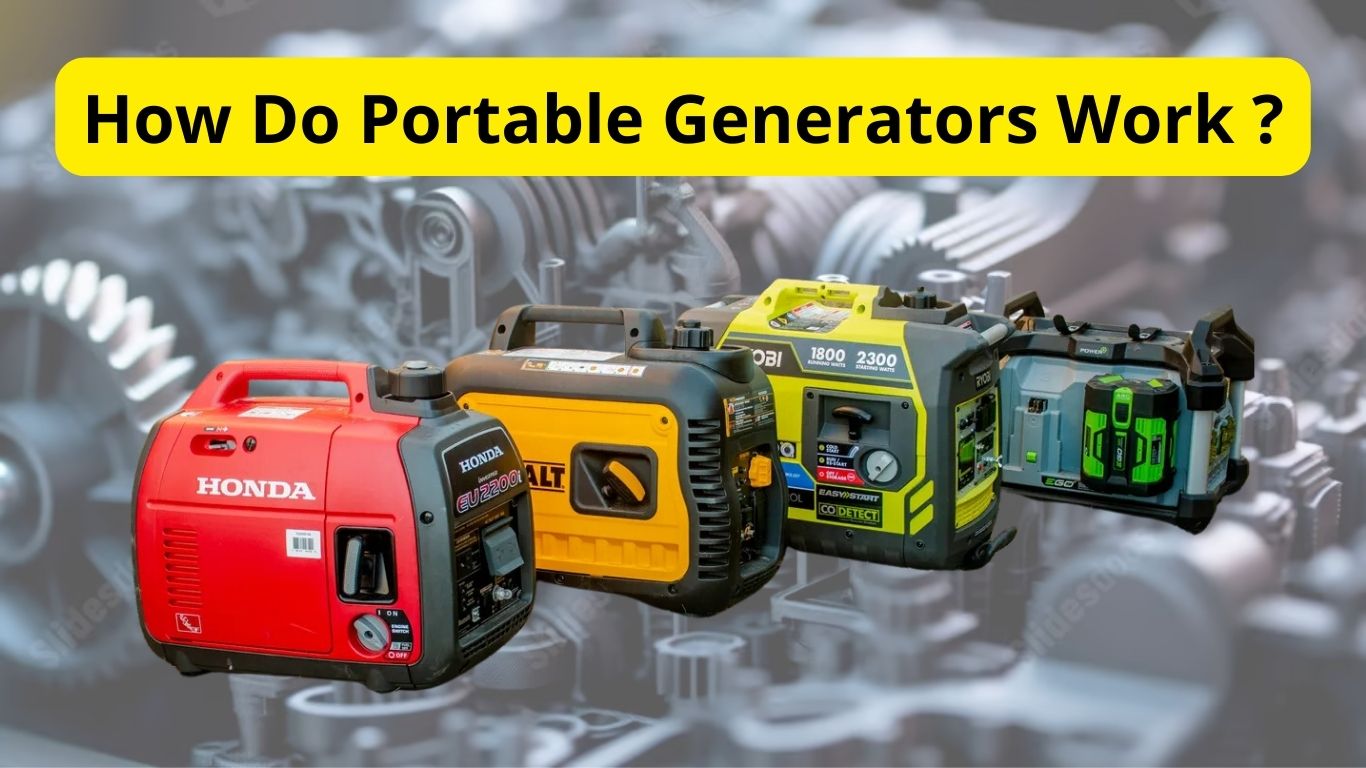Portable generators are versatile, mobile units that generate electricity in places without power. They convert fuels like gasoline, diesel, or propane into electrical energy, proving crucial in emergencies and useful for leisure activities. But how do generators work? Whether you’re a beginner or a seasoned user, it’s critical to grasp a number of essential safety protocols to safely operate a generator.
Definition and Purpose: A portable generator serves as a backup power source and is frequently used during power outages or in isolated locations. It ensures that critical appliances and systems continue to operate when the main power grid is down.
Overview of Components: Essential elements of a portable generator include the engine, alternator, fuel system, and controls. These components work in concert to generate and manage the electrical output, adapting to the needs of the connected devices.
Significance in Emergency and Recreational Settings: In emergencies, portable generators provide vital electricity to keep lights, refrigerators, and heaters operational. Recreationally, they offer power for camping, tailgating, and other outdoor events, increasing comfort and convenience in areas without standard power access.
Basic Working Principle
Portable generators function on a straightforward principle: they convert fuel into electricity. This transformation starts when fuel drives an engine linked to an alternator.
- Conversion of Fuel to Power: The engine uses fuel to generate mechanical energy, which is then passed to the alternator, the generator’s key component.
- Role of the Engine: The generator’s effectiveness and power output heavily rely on the engine’s performance. It is essential in determining how efficiently the generator converts fuel into mechanical energy.
- Generation of Electrical Energy: The mechanical energy generated by the engine is converted into electrical energy by the alternator. This conversion occurs through an electromagnetic process, where mechanical force initiates electron movement within a circuit, thereby producing electricity.
Portable generators are crucial for supplying dependable power in areas without grid electricity, offering essential energy support for emergencies and recreational uses alike. Their user-friendly design ensures that electricity is available on demand, wherever required, enhancing both safety and autonomy.
Parts of a Portable Generator
A portable generator acts as a miniature electric power station, transforming mechanical energy into electrical energy. Many models favor gasoline for its cost-effectiveness and convenience in starting this process, though alternatives like diesel or propane are also widely used.

Five major components of a portable generator include:
- Internal Combustion Engine: This component serves as the heart of your generator. It introduces fuel into the combustion chamber and ignites it, converting the fuel into mechanical energy.
- Alternator: This crucial component is where the transformation takes place. The alternator includes two primary parts that convert mechanical energy into electrical power. A rotating element, often called a “rotor,” stimulates a magnetic field around coils, producing a large number of electrons.
- Starter: This component is responsible for activating your generator. It may operate using a DC battery or, alternatively, employ a pull-cord mechanism.
- Fuel Tank: Generally, a portable generator comes with a tank designed for gasoline, diesel, or propane. While these fuels are easily accessible, their supply is not endless. Much like a lawnmower that might not start after being idle in a garage for an extended period, your generator needs periodic operation. It is recommended that your generator is run at least twice annually to make sure the fuel is fresh and ready for use when necessary.
- Outlets: The quantity and configuration of outlets on a portable generator depend on its specific make and model. Generally, the more you invest in your generator, the greater variety of outlet types you are likely to have at your disposal.
How Do Portable Generators Work?
The following explains point by point how the portable generator works:
- Engine Fuel: This model of generator operates on gasoline, propane, or diesel, which it stores in its fuel tank to power the engine.
- Starting the Engine: Depending on the model, the engine can be started using either a recoil or an electric start. Once running, the engine powers the alternator.
- Alternator: The alternator is a crucial component of the generator. It is responsible for transforming the mechanical energy produced by the engine into electrical energy. This conversion involves a rotor and a stator, which together produce alternating current (AC).
- Voltage Regulation: The generator’s voltage regulation stems from a regulator that ensures consistency in all output voltages, regardless of engine speed or generator load. This is crucial for powering home electronics and appliances.
- Power Distribution: The electrical power generated by the alternator is distributed through the generator’s outlets, including the 120-volt and 240-volt outlets.

Benefits of Portable Generators for Mobile Detailing
These are just a few of the numerous reasons why a portable generator will benefit your mobile detailing business.
- Convenience: These generators are highly portable and incredibly convenient, allowing them to be positioned in various locations for mobile detailing.
- Reliability: They also guarantee a dependable power supply in situations where finding electric outlets may be challenging.
- Flexibility: A portable generator can power a range of equipment, from basic vacuum cleaners and buffers to lights and compressors.
Top Portable Generators for Mobile Detailing
When selecting an appropriate generator for a mobile detailing business, one would undoubtedly have a wide array of options. Here are some of the top choices in the market:

- Westinghouse iGen2200 This small generator delivers 2200 running watts, making it an excellent option for mobile detailers needing dependable power for their tools with minimal noise. Its efficiency allows for extended operation on one fuel tank, perfect for a full day’s work.
- Honda EU2200i is engineered for both efficiency and reliability. The Honda EU2200i provides 2200 watts of consistent power, which is ideal for running sensitive detailing equipment. Its fuel-efficient technology helps mobile detailers control operating costs while ensuring steady power.
- Generac GP2500i Delivering 2500 watts, the Generac GP2500i is perfect for mobile detailers needing stronger power for high-demand equipment. Its compact design facilitates easy transport and versatile use in different mobile detailing environments, from residential driveways to corporate parking lots.
See more at Best Generator For Mobile Detailing
Choosing the Right Portable Generator for Mobile Detailing
Here are a few key points to consider when choosing a portable generator for your mobile detailing business:
- Power Output: Ensure the generator’s power output meets the requirements of your equipment.
- Fuel Efficiency: Choose a generator with a fuel-efficient engine to reduce both fuel costs and emissions.
- Noise Level: Opt for a generator with a low noise level to minimize disturbances and enhance working conditions.
Conclusion
Portable generators are highly versatile and dependable in providing power, making them an ideal solution for mobile detailers. Knowing how they operate and choosing the right one for your business ensures safe and efficient work. A portable generator is essential for anyone in the car detailing industry, whether dealing with cars, trucks, or RVs, as it simplifies tasks significantly.
Aurelio Mason is a leading authority in the development of generators for mobile detailing, with a keen focus on enhancing energy efficiency and reducing environmental impact. He has a decade of experience in electrical engineering and holds a Ph.D. from Stanford University. Aurelio’s innovations have led to breakthroughs in portable power technology, making mobile detailing services more accessible and sustainable. He has received several awards for his contributions to green technology in the automotive industry. Aurelio is based in Austin, Texas, where he oversees the R&D division at Mobile Power Innovations, striving to push the boundaries of what’s possible in mobile auto care solutions.


[…] Portable Generators: They are very comfortable and suitable for rather large power needs, from 1,500 to 17,500 watts. They are very ideal for use on the construction site, during outdoor events, or for backup power at home. ( See more about Portable Generator) […]